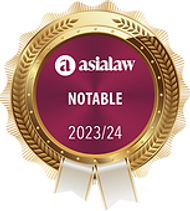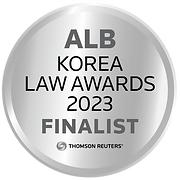“A” applied for a marketing director’s position advertised by “B” Company.
The advertisement stated that “B” Company’s Daegu was recruiting a PM, with welfare and salary standards identical to those at the headquarter in Seoul. After undergoing several stages of evaluation, including document review and interviews, “A” was hired, and subsequently relocated to Daegu, securing accommodation before commencing work at “B” Company’s Daegu branch.
On the third day of employment, “A” was presented with an employment contract. Assuming that a reputable company like “B” would not include problematic terms, “A” signed the contract without thoroughly reviewing its contents. This decision later led to complications.
The discord arose due to significant disparities between the advertised terms “A” had seen prior to application and those outlined in the employment contract. The contract specified terms substantially different from those “A” had anticipated, particularly concerning working conditions at the Seoul branch.
Feeling deceived, “A” contemplates legal action against “B” Company, alleging employment fraud. Would “B” Company bear legal responsibility in this scenario? Let us examine this through the lens of legal analysis presented in today’s post by InterLEX.
Nature of Employment Contracts
Situations like the aforementioned are not uncommon. Disputes between employees and companies often arise due to differences between job advertisements and employment contracts.
To resolve such disputes, it is imperative to accurately ascertain the nature of the employment contract. Fundamentally, a contract comprises an offer and acceptance. Similarly, an employment contract, being a contract, adheres to these principles.
Should the job advertisement be considered an ‘offer’ for the employment contract, the company could be held legally responsible for deviating from the terms outlined in the advertisement by drafting a contract with different provisions and offering benefits and salaries in a manner contrary to those advertised.
This is because the company failed to uphold the terms of the contract. However, according to court rulings, job advertisements are not offers but mere inducements or preparatory stages.
If “B” Company separately entered into a labor contract with “A”, disclosing different terms from those in the advertisement, and if “A” consented to these terms resulting in the contract’s drafting, the employment contract should be considered based on the contract’s terms rather than those in the job advertisement.
Thus, even if “A” demands that “B” Company adhere to the advertised terms regarding welfare and salary based on the disparities between the job advertisement and the labor contract, B Company bears no legal responsibility to accede to such demands.
It appears unlikely that “A”‘s employment conditions would change in accordance with the job advertisement.
Is “B” Company Exempt from Any Disadvantages?
From the perspective of an employee, such circumstances may seem inherently unfair. Ethically, if there are significant disparities between the job advertisement and the actual employment contract, it may seem reasonable for the company to bear some responsibility.
Regarding this matter, you may refer to the ‘Fair Hiring Procedure Act’ to ascertain the company’s liability.
Article 4 of the ‘Fair Hiring Procedure Act’ (Prohibition of False Recruitment Advertisements) states that an employer shall not issue false recruitment advertisements for the purpose of gathering ideas or promoting the business without justifiable reasons. Furthermore, employers shall not unjustifiably alter the contents of recruitment advertisements to the detriment of job seekers.
Employers shall not unjustifiably alter the employment conditions stated in recruitment advertisements to the detriment of job seekers after hiring them.
Employers shall not coerce job seekers into assigning employment documents or related intellectual property rights to them.
The Fair Hiring Procedure Act prohibits companies from issuing false recruitment advertisements or unjustifiably altering the contents of such advertisements to the detriment of job seekers. Violations may result in administrative fines of up to KRW 5 million.
What Actions Can “A” Take?
Therefore, in the scenario presented, it may be challenging for “A” to demand the same treatment as advertised in the job announcement based on differences between the job advertisement and the employment contract. However, it is possible to initiate legal proceedings against “B” Company to hold them accountable for the discrepancies and impose a administrative fine of up to KRW 5 million.
However, it may be more prudent for both parties to engage in constructive dialogue to reconcile the employment terms rather than resorting to legal action. Therefore, considering the current situation and weighing the pros and cons, it is advisable to seek legal advice to overhaul the company’s recruitment system and conduct legal reviews promptly.
InterLEX, a Korean boutique law firm specializing in HR and corporate law, has earned recognition for its expertise and proficiency. InterLEX’s attorneys are committed to providing beneficial solutions to its clients.












